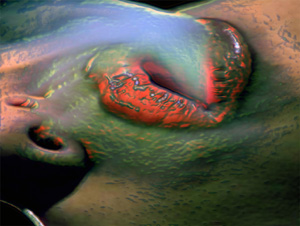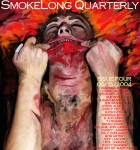We’re so impressed with the complexity and intelligence of this story, and wonder if you had a certain reader or type of reader in mind when you wrote it.
I don’t really have a certain type of reader in mind when I write. I just follow the heat, by which I mean my own interest and emotional connection to the characters. The basic rule is: if I’m compelled by what’s going on, the reader will be as well. This isn’t always true, but the converse is—if the writer is bored (even slightly) with what she’s writing, the reader will surely be.
You treat the alpha-husband quite tenderly here. Do you think it’s important for a writer to have some affection for all of his characters?
Absolutely. The attitude an author should have with his characters is along the lines of Christ: unconditional love and forgiveness. In fact, we should love our characters not for their nobility and strength, but for their iniquity and weakness (as Christ did). You have to love them enough to expose them fully and forgive them. That’s sort of preachy, but it’s also true. Think of any great book—it’s an act of transmission of love, from the author to the characters to the reader.
If you could give a novice writer one piece of advice, what would it be?
Fuck style. Tell the truth.
Your new book, CANDYFREAK, has taken off like a rocket. Why do you think this topic resonates with so many adults?
Candy is a nostalgia trigger. It’s the first forbidden pleasure of childhood. And it cuts deep. Every single person in this country can remember buying candy, the illicit thrill of it, all the desire for self-love and the resultant guilt. The wiring runs from the freak to the pleasure center to the memory banks.
We love literature, sex and candy. Which is best?
It’s all the same thing, in the end—these are just different ways of feeling intensely alive. My favorite thing is to eat candy while having sex and reading a great book. But that’s just me.


